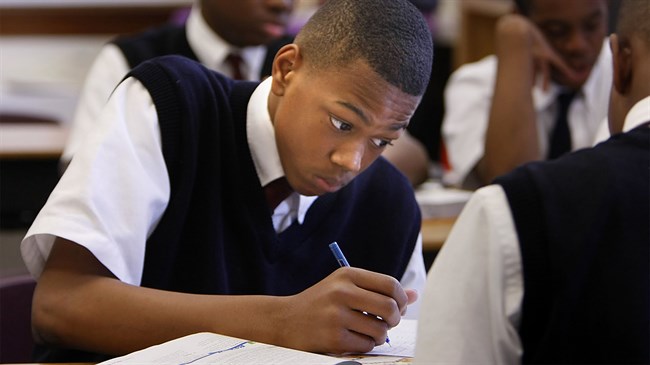
In recent years, research has found that black high school students across the US are at least three times more likely to be suspended from school compared to white students. However, social scientists have been unsure as to the reasons why this happens. Now, two new studies from a University of Missouri researcher have determined that differences in misbehavior and negative attitudes cannot explain why black students are suspended at higher rates.
Francis Huang, an assistant professor of education, school and counseling psychology in the MU College of Education, examined two different sets of data for his studies. One data set was from a national survey of American high school students; the other data set was from a statewide survey of high school students in Virginia. Students were asked to report certain misbehaviors and attitudes and if they had received out-of-school suspensions. Huang found that, although some differences existed among races in certain types of misbehavior, these differences could not explain the disproportionalities in suspension rates, phys.org wrote.
"Student attitudes and actual misbehaviors are very strong predictors for whether a student will be suspended, which means that suspensions are not entirely arbitrary," Huang said. "Regardless of race, students who expressed aggressive or negative attitudes toward school, their teachers and their peers were much more likely to be suspended than students with more positive attitudes or who did not engage in misbehaviors such as fighting at school. However, the reported attitudes supporting these misbehaviors were very similar for both black and white students."
Huang examined student-reported misbehaviors that are most likely to lead to school suspensions. These behaviors include fighting at school, bullying, bringing weapons to school, using marijuana and drinking alcohol. Huang found no differences between white and black students in the rates of bullying, bringing weapons to school and marijuana use. However, he did find that white students were more likely to drink alcohol while black students were more likely to fight in school.
"These findings are similar to what we see in national surveys conducted by the Centers for Disease Control and Prevention, but our new studies draw a link between these misbehaviors and out-of-school suspensions," Huang said.
Huang suggests that schools can help reduce the use of suspensions by targeting the misbehaviors and implementing interventions targeting aggression.
"It is important for schools to find alternatives to suspensions as they hurt students' abilities to succeed academically," Huang said. "The more school students miss, the farther behind they fall in their school work and the more likely they are to get into trouble. It is a vicious cycle. Schools can take steps to lessen the need for suspensions by implementing interventions that reduce aggressive behaviors and attitudes, since those are the most likely reasons why students are suspended."

Add new comment